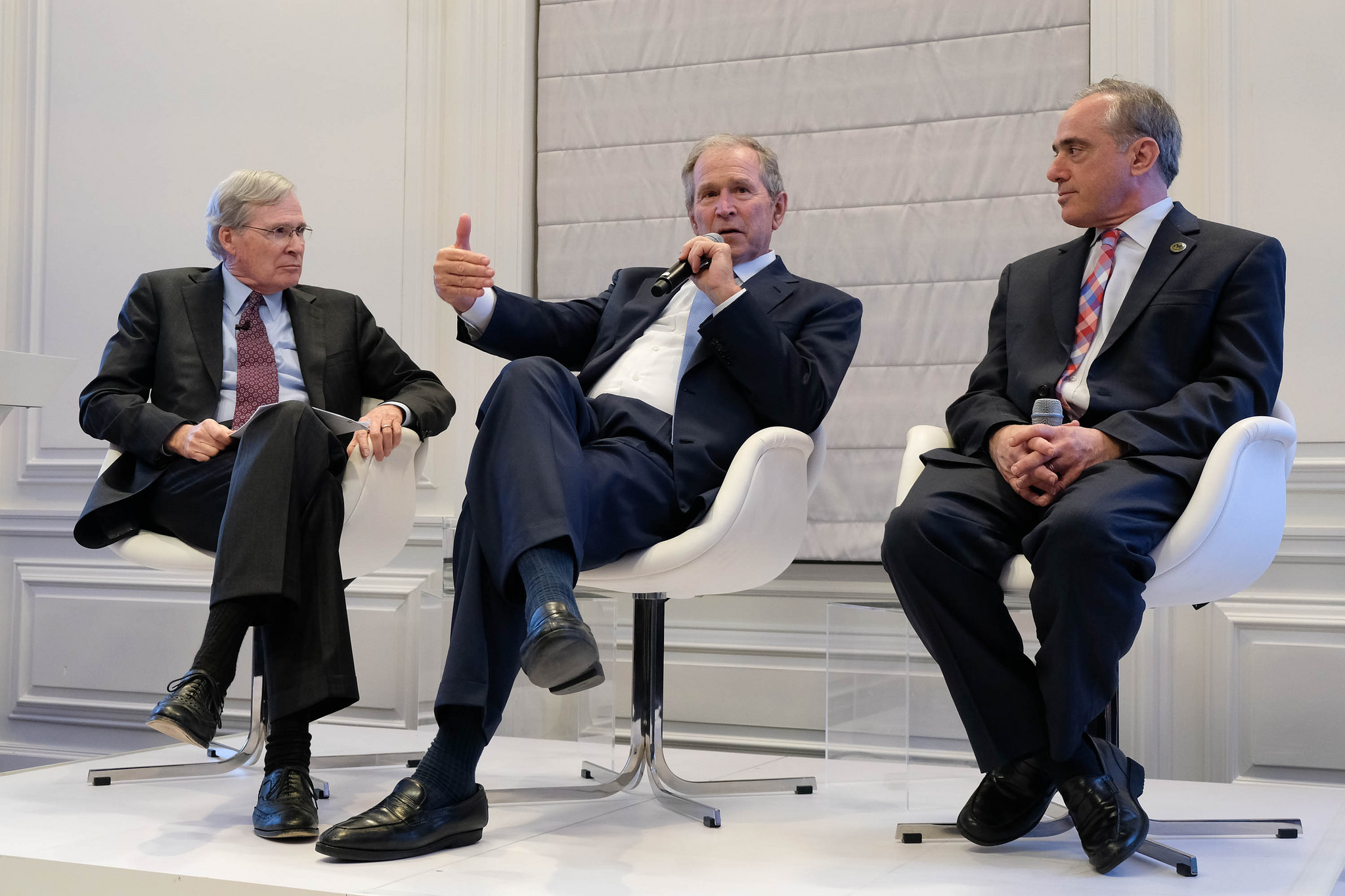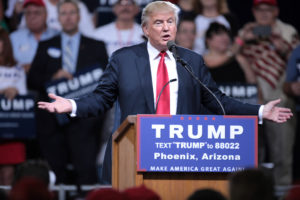A Republican Resistance: Will the Establishment Speak Out Against Trump?
 https://flic.kr/p/VzhLJA
https://flic.kr/p/VzhLJA

Without mentioning his name, former Republican President George W. Bush appeared to castigate Trump in a rare public speech given last Thursday. Bush specifically denounced Trump’s brand of nationalism, warning that it has “distorted into nativism”. A handful of prominent Republicans have been at odds with their party’s president, notably senators John McCain and Jeff Flake. Recently, a public feud also ensued with Senator Bob Corker. That Trump and the Republican establishment don’t see eye to eye is evident. During the presidential campaign, the ‘Never Trump’ movement sought to prevent Trump from hijacking the party away from the old base. Since he was elected President, the majority of Republicans opted to give him a chance. Now, in light of Bush’s comments, and sporadic feuds with senators, a new Republican resistance might be looming.
Ever since Jeb Bush was bullied out of the presidential race, the Bush family opposed and condemned Donald Trump. Together with other prominent members, such as Mitt Romney, an effort was made to prevent the rise of Trump. The Bushes did not vote for the candidate, but they were careful not to draw a wedge within the Republican party when he was elected. That is until now. In the speech that George W. Bush gave at a forum in New York, he defended free trade and immigration, implicitly opposing the direction Trump is taking. While Bush was quiet throughout the Obama presidency, his decision to speak out against a Republican one, albeit implicitly, indicates the sense of discontentment among establishment Republicans. Significantly, Bush received praise from liberals on the left for his speech, suggesting their former political foe has rebranded himself as a voice of reason in the midst of political instability. Others are cautious to give him too much credit, indicating that he is complicit in Trump’s rise.
During the first couple of months of his presidency, Trump has had a tumultuous relationship with fellow Republican lawmakers. In the case of Bob Corker, there was a rapid deterioration. Shortly after Corker criticized the president for his behaviour in response to the deadly Charlottesville rally, relations turned sour. When Trump took to Twitter to condemn the senator on October 9th, Corker did not hold back in his rebuttal. He responded with a series of insults, comparing the White house to an adult day care center, and claiming Trump is setting the country “ on the path to World War III”. While Corker claimed that his view echoes that of a vast majority of GOP legislators, the bulk have largely stayed out of it. The difference between Corker and other Republican senators may not be grounded in a difference in opinion, but in the fact that Corker has decided not to seek re-election. When Arizona senator Jeff Flake spoke out against Trump, the president was quick to unleash his backbone to rally against Flake, who now risks losing to Trump-preferred candidate Kelli Ward in the next Arizona primaries. Recently, Steve Bannon has reinforced the message that speaking out against Trump could be costly. The former white house strategist associated with the alt-right, has promised to raise hell on establishment candidates that don’t conform to Trump.
While a select number of GOP legislators are undeterred by the threat of being voted out of Trump’s base, such as Flake and Corker, the majority of party members are reluctant to speak out explicitly. What is more probable is that legislators who oppose Republican bills will be dragged into feuds that are started by Trump. This became apparent when McCain opposed the Republican effort to rollback the Affordable Care Act last month. Other GOP members have tried to put their differences with the president aside in order to keep the party together. If the busy legislative agenda at hand- with tax-reform at the forefront- is met with gridlock within the party, internal divisions are likely to rise. How the GOP in Congress will work with the White House on policy objectives will be significant. For now only a few members of the traditional Republican establishment have voiced public criticism of the Republican president. Time will tell whether legislators in congress will follow Bush and stand up against the bullies, Bannon and Trump.
Edited by Benjamin Aloi
